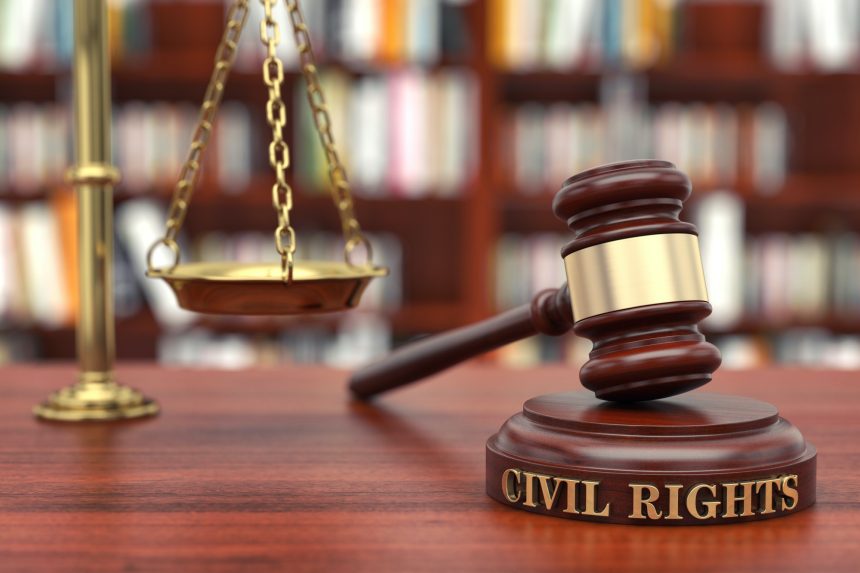Civil rights violations are devastating. In FY 2020, more than 67,000 people filed with the EEOC claiming their rights were violated. Yet this number only represents a fraction of abuses in the United States.
Many people are reluctant to hire a civil rights attorney. They may feel that they are escalating the situation unnecessarily. But there are times when a civil rights lawyer is warranted.
What are your protections under the Fair Housing Act and the Civil Rights Act of 1964? How can a restaurant refuse you service? What are gender discrimination and sexual harassment, and who should you go to for help?
Answer these questions and you can understand when it is time to go to court to protect your civil rights. Here is your quick guide.
You Encounter Discrimination in Housing
The Fair Housing Act makes any form of housing discrimination illegal. This applies to private, public, and federal housing. The law extends to renting or buying a home, along with getting a mortgage or seeking assistance.
The Act prohibits discrimination due to race, nationality, religion, or familial status. It does not currently apply to sexual orientation or gender identity, though it can apply to sex.
The Act also requires housing providers to make accommodations for people with disabilities. They must install ramps if a resident is in a wheelchair. They must permit a service animal even if they do not allow pets in their building.
Discrimination may be covert. Someone offering a mortgage may run background checks on applicants who are people of color. For white people, they may not run these checks.
Covert discrimination still counts as discrimination. You should contact a civil rights lawyer who can help you with your claim.
You Are Refused Service Because of Your Identity
A business can refuse service to a customer for many reasons. If the customer is not wearing shoes, they can be asked to leave. This is due to sanitary reasons, not discrimination.
The Civil Rights Law of 1964 prevents restaurants from refusing service based on racial or religious characteristics. An owner cannot refuse a Black person from eating just because they are Black. Owners cannot segregate seating arrangements or ask Black customers to enter through another door.
Some states have laws prohibiting discrimination based on sexual orientation. Many cities have instituted similar laws.
If you feel you were denied service because of who you are, you can file for civil rights violations. Showing a pattern of behavior is very persuasive. Look for other accounts of refusal of service during the discovery phase.
You Experience Gender Discrimination
Gender discrimination can be multi-faceted. A company may decline someone a job or promotion because of their gender.
The company may give the job, only to hold the applicant to higher standards. The applicant may be criticized for being “aggressive,” while male employees are praised for being leaders.
They may pay someone less than another person with similar qualifications. If the employee asks for a pay raise, they may receive discipline.
Gender discrimination does not have to be intentional. What counts is that an employer does something that hurts workers of a particular gender identity.
The behavior must violate the terms and conditions of a person’s employment. Terms include work responsibilities and performance evaluation standards.
Many cases of gender discrimination involve cis-gendered women. But it is possible for men, transgender people, and genderqueer individuals to experience discrimination.
Title VII of the Civil Rights Act of 1964 makes workplace gender discrimination illegal. It also applies to sex, race, gender identity, and sexual orientation.
If you encounter discrimination, you should file a Title VII complaint with the EEOC. You may have six months to do so, so try to be quick.
You Encounter Sexual Harassment
Sexual harassment can be a kind of gender discrimination. But it is its own form of civil rights violation. Many behaviors can constitute harassment.
Groping and inappropriate touching are prominent examples. The touching may be on “non-sexual” areas of the body, like the shoulders or back. It is still harassment if it is unwelcome.
Sexual advances and requests for sexual favors are non-physical examples. A person may receive jokes or lewd comments about their physical appearance. They can receive sexually explicit materials, including pornography.
Sexual harassment can occur to anyone of any gender identity, sexual orientation, and body type. The perpetrators can be anyone, including non-employees. A person may experience harassment from one individual or multiple people.
You can file a complaint with the EEOC if you encounter sexual harassment. As with gender discrimination, you are under a deadline. Try to gather information and file as soon as you can.
Your employer cannot fire, demote, or change your job position if you file a complaint. You can file another complaint after this occurs.
It may be hard to prove your case if harassment happened once. Try to look at prior case litigation. If you can show a pattern of behavior, you will strengthen your claim.
When You Should Hire a Civil Rights Attorney
A civil rights attorney can work on many cases. Housing discrimination is a major focus in civil rights law. You cannot be denied a housing opportunity for immutable characteristics, namely your race.
A restaurant cannot deny you service for no good reason. Try to show a history of discriminatory behaviors.
Your employer cannot violate your terms and conditions. You cannot experience sexual harassment that demeans you. Go to the EEOC and file a discrimination claim.
Reading about your rights will help you fight for them. Follow our coverage for more legal guides.














